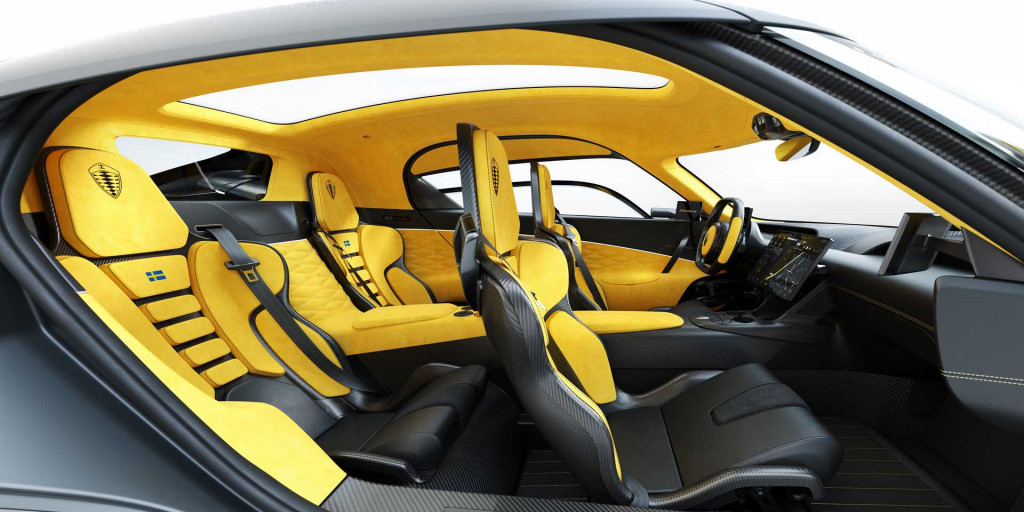It’s been more than three years since Koenigsegg took the covers off the Gemera, a four-seat hypercar generating 1,700 hp from a 3-cylinder engine and a trio of electric motors.
A new crop of electric hypercars boasting outputs reaching as high as 2,000 hp has since emerged, including the Lotus Evija and its 2,011 hp, which makes it the most powerful production car in the world.
Koenigsegg may have a response to these soon, and it comes from a tried-and-tested V-8 engine.
Koenigsegg enthusiast website Egg Registry has reported that Koenigsegg held a recent meeting with dealers and customers to mark the completion of a plant expansion to support Gemera production. At the event, the company announced a V-8 engine will be offered as an alternative to the turbocharged 2.0-liter inline-3 that was revealed at the Gemera’s 2020 Geneva auto show debut.
Koenigsegg Gemera
According to the website, the new engine is the same turbocharged 5.0-liter V-8 destined for the Koenigsegg Jesko, and when paired with the Gemera’s electric motors will generate 2,300 hp on E85 fuel. The 3-cylinder will reportedly remain standard, and the V-8 will be a very hefty $400,000 option.
The electric side of the Gemera’s powertrain will be the same for both gas engines. It relies on Koenigsegg’s own Quark electric motor, which weighs 63 pounds and develops up to 335 hp. Three of the motors feature in the Gemera, and the car will get Koenigsegg’s own inverter, which the company has christened David. Powering the electric motors is a 15-kwh battery.
Koenigsegg has previously claimed a 0-62 mph time of 1.9 seconds and a record-speed run to 248 mph with the 3-cylinder engine.

Koenigsegg Gemera
According to Egg Registry, Koenigsegg will also add conventional side mirrors to the Gemera, instead of a camera-based mirrors as previously shown, to meet requirements in the U.S. The car will also reportedly be offered with an aerodynamics package dubbed the Ghost Package.
Koenigsegg has previously said Gemera production will be limited to 300 units and that deliveries will start around 2025.
